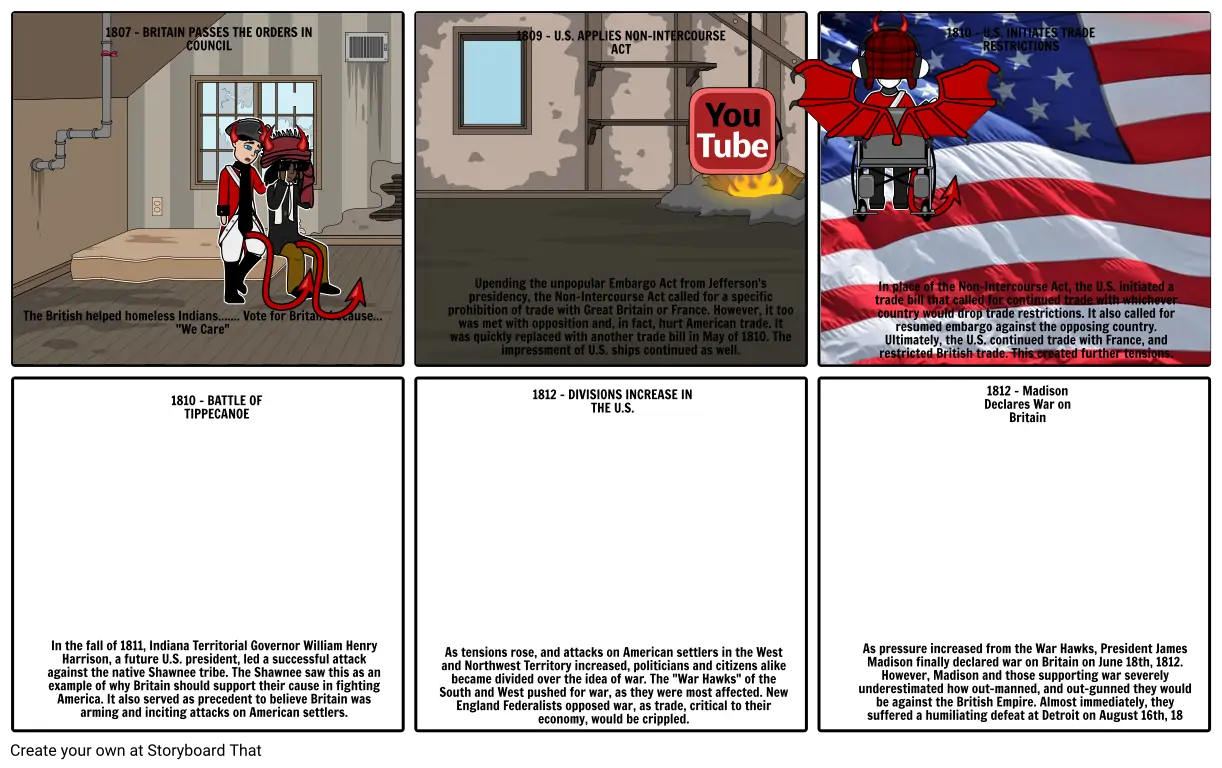fqwdfhoajdfo

Storyboard Description
`dfsdhvgsjosjvgo
Storyboard Text
- The British helped homeless Indians....... Vote for Britain because... "We Care"
- 1807 - BRITAIN PASSES THE ORDERS IN COUNCIL
- Upending the unpopular Embargo Act from Jefferson's presidency, the Non-Intercourse Act called for a specific prohibition of trade with Great Britain or France. However, it too was met with opposition and, in fact, hurt American trade. It was quickly replaced with another trade bill in May of 1810. The impressment of U.S. ships continued as well.
- 1809 - U.S. APPLIES NON-INTERCOURSE ACT
- In place of the Non-Intercourse Act, the U.S. initiated a trade bill that called for continued trade with whichever country would drop trade restrictions. It also called for resumed embargo against the opposing country. Ultimately, the U.S. continued trade with France, and restricted British trade. This created further tensions.
- 1810 - U.S. INITIATES TRADE RESTRICTIONS
- In the fall of 1811, Indiana Territorial Governor William Henry Harrison, a future U.S. president, led a successful attack against the native Shawnee tribe. The Shawnee saw this as an example of why Britain should support their cause in fighting America. It also served as precedent to believe Britain was arming and inciting attacks on American settlers.
- 1810 - BATTLE OF TIPPECANOE
- As tensions rose, and attacks on American settlers in the West and Northwest Territory increased, politicians and citizens alike became divided over the idea of war. The "War Hawks" of the South and West pushed for war, as they were most affected. New England Federalists opposed war, as trade, critical to their economy, would be crippled.
- 1812 - DIVISIONS INCREASE IN THE U.S.
- As pressure increased from the War Hawks, President James Madison finally declared war on Britain on June 18th, 1812. However, Madison and those supporting war severely underestimated how out-manned, and out-gunned they would be against the British Empire. Almost immediately, they suffered a humiliating defeat at Detroit on August 16th, 18
- 1812 - Madison Declares War on Britain
Over 30 Million Storyboards Created

